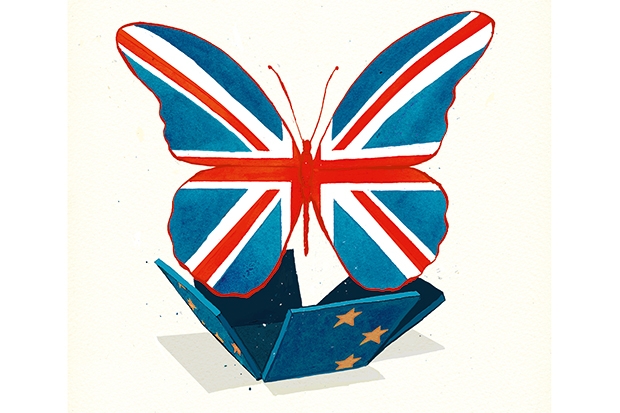One of the City’s best-known economists, Roger Bootle, discusses whether a success could be made from Brexit, just over a year after Britain to leave the European Union.
Bootle begins by explaining the ‘overblown’ nature of the ‘European Single Market’ concept:
I don’t think what has been clearly said or argued is that the [European] ‘Single Market’ is vastly overblown. There are advantages and disadvantages of not being part of it. However, I do think it has become a protectionist entity.
The original idea for a [European] ‘Single Market’ was a British one supported by former Conservative Prime Minister, Margaret Thatcher. The idea behind the [European] ‘Single Market’ was to break down the non-tariff barriers [that] existed between European countries and have one single set of requirements and regulations across the EU.
Bootle believes, over the years, something has gone wrong with the [European] ‘Single Market’ concept.
The ‘Single Market’ has broadly worked for goods, but not for services. Even for goods, this single set of regulations has become more of a burden due to the level of regulation imposed by the EU. The big problem with the EU is that it was conceived in the mid-1950s, in a [bygone] time of the ‘Iron Curtain’. Only six-member countries signed the Treaty of Rome in 1957: Belgium, France, Italy, Luxembourg, the Netherlands and West Germany.
Free movement, back then was a completely different animal compared with what it is now; i.e. the 28-member countries that currently make up the EU, including some pretty poor countries from the Eastern bloc.
Going back to the issue of why people voted for Brexit, he believes it is a complex one:
People voted for Brexit for different reasons. There is widespread concern about immigration to Britain. I don’t think immigration is bad, quite the contrary, in many ways it is good. It is all about the numbers, and it is fair to say that Britain has had a substantial amount of immigration from outside the EU and from inside the EU.
We have all sorts of issues in the UK economy but nothing that can’t be tackled with roughly the level of population we have now. It would be bizarre to tackle our economic issues and problems by opening the borders to solve it all.
Bootle is quite passionate about what Theresa May’s government should be doing about the whole issue of Brexit, and concludes that the political situation is ‘very difficult’.
Politically the situation is very uncomfortable. Clearly Theresa May made it worse by calling the General Election when she did, and by conducting such a woeful campaign. What the government should be doing is promoting the economic welfare of the British.
So if (and when) the political situation is resolved and Britain exits the EU, what will the British people be left with? A Britain which resembles Switzerland, Singapore or Norway?
I don’t think [Britain] will be like any of those countries. Although I have been in favour of Brexit, I don’t think it is the ‘Road to Riches’ or the ‘Road to Perdition’. [Brexit] presents a lot of opportunities and challenges but we will have to meet these. I happen to think we probably will. But in principle we could ‘blow it’ and run our affairs badly.
If we don’t do that and run our affairs well, I’d like to think we would be a more competitive economy. We would be a more global economy and more outward facing. I think we could escape from what is holding us back. We could be more open, less protectionist and more competitive.
Roger Bootle
Roger Bootle is one of the City of London’s best-known economists. As well as running Capital Economics, which he founded in 1999, Bootle is also a Specialist Adviser to the House of Commons Treasury Committee and an Honorary Fellow of the Institute of Actuaries. He was formerly Group Chief Economist of HSBC and, under the previous Conservative government, he was appointed one of the Chancellor’s panel of Independent Economic Advisers. In 2012, Roger and a team from Capital Economics won the Wolfson Prize, the second biggest prize in Economics after the Nobel.
‘Making a Success of Brexit and Reforming the EU: The Brexit edition of The Trouble with Europe’ by Roger Bootle is available to buy now.






Comments